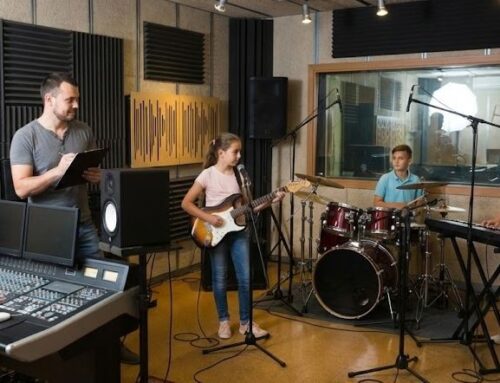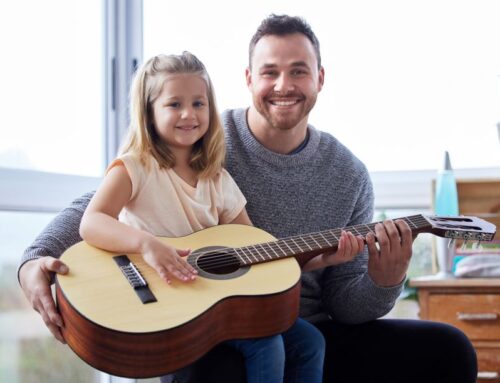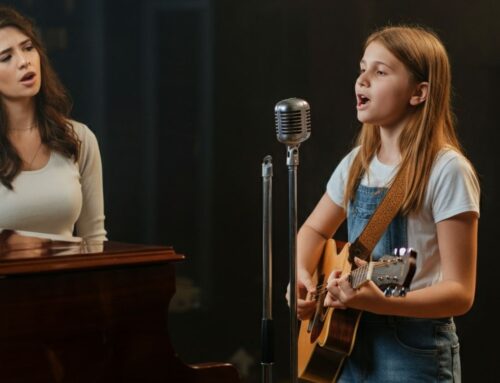Early musical education has many advantages. In addition to providing a creative outlet for your child, learning an instrument encourages persistence, and dexterity. In addition to that, with most instruments, it can provide fantastic social opportunities and help develop teamwork skills once they’re old enough to join a band or orchestra. Of course, many will enjoy going solo or just playing for their own children as adults. Which instrument is right for your child?
Age Matters
It’s important to consider the child’s age when helping them select an instrument. Piano lessons is a most popular option for children just starting out. In addition to introducing a child to the world of music – both developing a keen ear and learning to read notes – the piano is a great way to develop memory and fine motor skills even for young minds.
Drums are often a fun choice for kids (even though it may not be music to parents’ ears when they’re just starting out!). It helps them understand the importance of musical rhythm and timing, plus it is a great outlet for energetic ones! Before going out and buying a drum kit, it might be a good idea to enroll your child for drums lessons. Not only will you save an investment that may be premature, they’ll learn to play correctly from the start (and you can isolate the sound to a location outside your home!).
Personality
Is your child outgoing or shy? Highly focused or easily frustrated? Messily enthusiastic or a bit prim? All these traits will make a difference in how much your child enjoys playing his or her instrument.
A child who loves loud noises and big groups will have a great time playing the electric guitar, whereas a quiet, demure child might find it a bit much. Do you have a constant hummer on your hands? Then singing lessons may just be the ticket to get those off-tune notes just right. Maybe your child has taken to your folksy influence and would like to play the ukelele!
One common theme is that children often have a relatively short attention span – yet this is normal. Sometimes, they get into “the grass is always greener on the other instrument’s side”. It is perfectly ok for children to take time off one instrument to learn another. Given this, it’s wise to select a local music school that affords the opportunity to learn several instruments should your child wish to take on a new challenge. The important thing is that they have the opportunity to maintain their passion for music.
Cost
At times, professional grade instruments can break the bank. Parents often look for affordable options and when selecting music lessons for their children, they look to schools or teachers that provide the instrument. This is particularly the case for piano lessons, which is another reason why it is a great first choice for little ones. At home, a relatively inexpensive keyboard can be your ticket to having them practice regularly.
Many music schools providing lessons can either help you with discounts on purchasing instruments or provide them…think piano, drums and even guitars in many cases.
OK, We’ve Selected an Instrument. Now What?
Once you and your child have picked an instrument, they have to learn how to play. And unless you’re a professional musician yourself, that means music lessons. Actually, even if you are a pro, you should probably still look into them. Learning to play an instrument is about more than just the music. A skilled teacher will be able to best guide your son or daughter – and besides, learning to work with and developing a rapport with adults outside of the home is a crucial life skill. (One that will serve your child well throughout their lives, whether they become a professional musician themselves or learn just enough to appreciate the beauty and artistry of those who are.) Now is the time to start your child’s musical journey in life!





